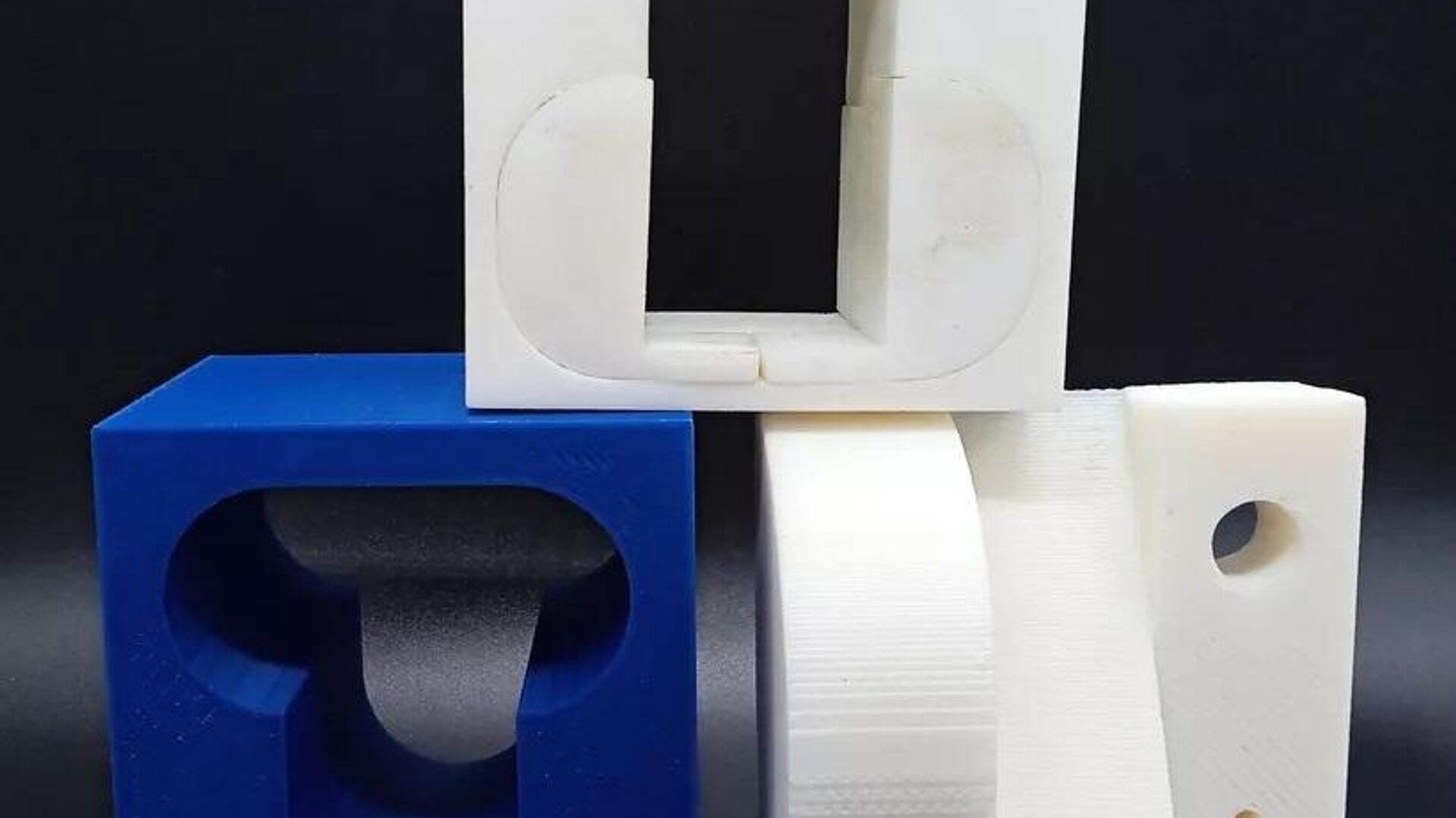https://en.sputniknews.africa/20231215/1064137858.html
Russian Researchers Transform Radiation Therapy Through Innovative 3D Printing Advancement
Russian Researchers Transform Radiation Therapy Through Innovative 3D Printing Advancement
Sputnik Africa
Scientists at Russia's Tomsk Polytechnic University (TPU) have unveiled an innovative approach to amplify the efficacy of radiation therapy in a major leap... 15.12.2023, Sputnik Africa
2023-12-15T13:32+0100
2023-12-15T13:32+0100
2023-12-15T17:34+0100
russia
international
science
research
medicine
health
healthcare
https://cdn1.img.sputniknews.africa/img/07e7/0c/0f/1064138035_0:220:820:681_1920x0_80_0_0_666f6b90fcf1a35a03782bf51dbd932a.jpg
Using cutting-edge 3D printing technology, the team has developed personalized polymer devices designed to distribute electron doses more precisely during radiation treatment. This innovative approach promises to revolutionize how tumors are targeted, offering a more efficient and less harmful option compared to traditional methods. The research results were published in the scientific journal Nuclear Instruments and Methods in Physics Research, Section A: Accelerators, Spectrometers, Detectors and Associated Equipment.Radiation therapy, a cornerstone in the battle against malignant tumors, has been significantly improved by this new technique. The TPU scientists' development enables controlled irradiation that maximizes tumor targeting while minimizing damage to surrounding healthy tissue. This precision is achieved through the novel use of 3D-printed devices that shape the electron beam to conform to the specific geometry of each tumor, a method not possible with standard radiation equipment.Standard radiation therapy tools are limited in their ability to shape the electron beam, typically producing only square or circular fields with uniform depth distribution. The TPU team's method, however, adjusts the beam's cross-sectional distribution to mirror the tumor's shape, taking into account the unique anatomical features of each patient. This individualized approach is a game-changer in radiation therapy, offering a bespoke treatment that is both faster and more precise.Irina Miloychikova, an associate professor at TPU, emphasized the significance of this innovation. She explained that their solution harnesses the advancements in 3D printing to rapidly and accurately produce these custom devices, a process far more efficient than existing methods that rely on cutting or melting metal.The introduction of these polymer-based devices is set to transform daily medical practice by offering a more accessible and adaptable option in radiation therapy. Looking ahead, the TPU research team plans to expand their studies, exploring new materials and applications of 3D printing technology for other types of radiation therapy.This research, supported by a grant from the Russian Science Foundation (Project No. 19-79-10014-P), represents a significant stride forward in personalized medicine and cancer treatment, potentially improving outcomes for patients worldwide.
https://en.sputniknews.africa/20231118/space-researchers-detect-green-night-on-mars-1063629934.html
russia
Sputnik Africa
feedback@sputniknews.com
+74956456601
MIA „Rossiya Segodnya“
2023
Sputnik Africa
feedback@sputniknews.com
+74956456601
MIA „Rossiya Segodnya“
News
en_EN
Sputnik Africa
feedback@sputniknews.com
+74956456601
MIA „Rossiya Segodnya“
Sputnik Africa
feedback@sputniknews.com
+74956456601
MIA „Rossiya Segodnya“
russia, international, science, research, medicine, health, healthcare
russia, international, science, research, medicine, health, healthcare
Russian Researchers Transform Radiation Therapy Through Innovative 3D Printing Advancement
13:32 15.12.2023 (Updated: 17:34 15.12.2023) Scientists at Russia's Tomsk Polytechnic University (TPU) have unveiled an innovative approach to amplify the efficacy of radiation therapy in a major leap forward in cancer treatment.
Using cutting-edge 3D printing technology, the team has developed personalized polymer devices designed to distribute electron doses more precisely during radiation treatment. This innovative approach promises to revolutionize how tumors are targeted, offering a more efficient and less harmful option compared to traditional methods. The research results
were published in the scientific journal
Nuclear Instruments and Methods in Physics Research, Section A: Accelerators, Spectrometers, Detectors and Associated Equipment.
Radiation therapy, a cornerstone in the battle against malignant tumors, has been significantly improved by this new technique. The TPU scientists' development enables controlled irradiation that maximizes tumor targeting while minimizing damage to surrounding healthy tissue. This precision is achieved through the novel use of 3D-printed devices that shape the electron beam to conform to the specific geometry of each tumor, a method not possible with standard radiation equipment.
Standard radiation therapy tools are limited in their ability to shape the electron beam, typically producing only square or circular fields with uniform depth distribution. The TPU team's method, however, adjusts the beam's cross-sectional distribution to mirror the tumor's shape, taking into account the unique anatomical features of each patient. This individualized
approach is a game-changer in radiation therapy, offering a bespoke treatment that is both faster and more precise.
Irina Miloychikova, an associate professor at TPU, emphasized the significance of this innovation. She explained that their solution harnesses the advancements in 3D printing to rapidly and accurately produce these custom devices, a process far more efficient than existing methods that rely on cutting or melting metal.
The introduction of these polymer-based devices is set to transform daily medical practice by offering a more accessible and adaptable option in radiation therapy. Looking ahead, the TPU research team plans to expand their studies, exploring new materials and applications of
3D printing technology for other types of radiation therapy.
This research, supported by a grant from the Russian Science Foundation (Project No. 19-79-10014-P), represents a significant stride forward in personalized medicine and cancer treatment, potentially improving outcomes for patients worldwide.


